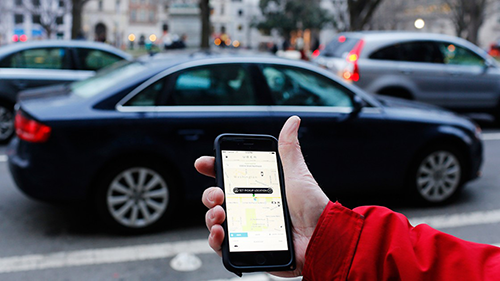Jun 08 2016 Sidewalk Labs and Transportation for America team up to help cities address transportation problems
 This month, one city will be announced the winner of the U.S. Department of Transportation’s Smart City Challenge and receive up to $40 million to integrate innovative technologies, from self-driving cars to smart sensors, into their transportation planning. The DOT is choosing the winner from seven finalist cities, narrowed down from 78 applications received — The application process encouraged city officials to think about how the future of urban mobility could transform their city. Recognizing that it would be a shame for these good ideas to go to waste — and that many cities need additional support to solve their biggest transportation challenges — Transportation for America (T4A) and Sidewalk Labs will work together to help some of the applicants that aren’t chosen, and other cities across the United States, solve big transportation problems with new technology.
This month, one city will be announced the winner of the U.S. Department of Transportation’s Smart City Challenge and receive up to $40 million to integrate innovative technologies, from self-driving cars to smart sensors, into their transportation planning. The DOT is choosing the winner from seven finalist cities, narrowed down from 78 applications received — The application process encouraged city officials to think about how the future of urban mobility could transform their city. Recognizing that it would be a shame for these good ideas to go to waste — and that many cities need additional support to solve their biggest transportation challenges — Transportation for America (T4A) and Sidewalk Labs will work together to help some of the applicants that aren’t chosen, and other cities across the United States, solve big transportation problems with new technology.
Non-profits and the private sector are playing an increasingly important role in transportation decision making today, explained U.S. Secretary of Transportation Anthony Foxx in a Brookings Institution webinar earlier this year. T4A and Sidewalk Labs each bring key assets and expertise to this partnership, which will work with local government officials across the country. T4A, an alliance of government, business, and civic leaders with a history of working with state and local governments on transportation, will bring experience working with the public sector on important transportation issues. Sidewalk Labs, a subsidiary of Google’s parent company, Alphabet, Inc., works with cities to solve complex urban problems and brings the technological expertise. (One of Sidewalk Labs’ first projects is LinkNYC, which is equipping New Yorkers with kiosks across the city that provide free public wifi, phone calls, device charging, and a tablet for Internet browsing, access to city services, maps, and directions.)
“The Sidewalk-T4A collaborative can empower cities to lead the conversation about how to meet their mobility needs with technology, rather than seeing tech as an end in itself.”
One of the main goals of the new partnership is to help cities create “connected streets,” which builds upon the concept of complete streets. While the complete streets movement aims to redesign urban infrastructure so it accommodates cars, pedestrians, bicyclists, and public transit riders, the concept of connected streets advances “the concept of complete streets into the digital realm … [providing] tech-enabled, multimodal options that expand access to job opportunities across the region” and ultimately “reduce the divide between what I’d call the transportation haves and have-nots,” according to a recent Q&A between Sidewalk Labs and T4A.
One example is helping cities figure out how best to work with ride-sharing services like Uber. Instead of choosing to let them run or shutting them down, says T4A Director James Corless, “I think we need to begin having cities understand how to shape this conversation and frankly shape their future. They need to be embracing and using these advances in tech-enabled mobility to meet these broader goals.”
While new technology will be important for the partnership’s work, the organizations will not be focusing on technology for technology’s sake. Sidewalk Labs notes in the Q&A,“The Sidewalk-T4A collaborative can empower cities to lead the conversation about how to meet their mobility needs with technology, rather than seeing tech as an end in itself.”
